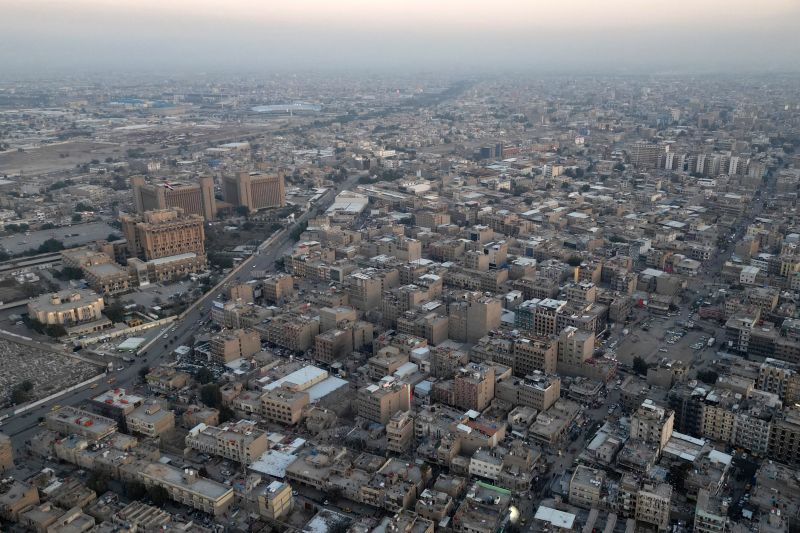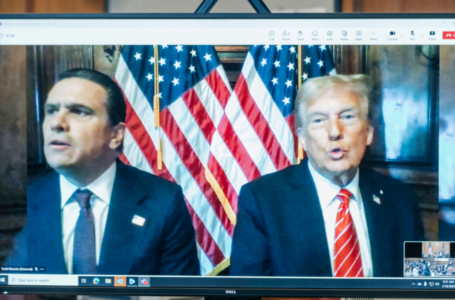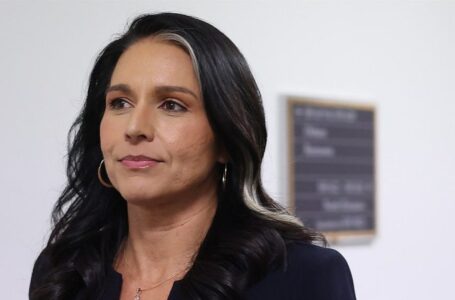Bounty hunting wild boars in China: The once-protected species is now a growing public menace
Same-sex couples face up to 15 years in prison in Iraq’s LGBTQ crackdown


Iraq has passed a new law that penalizes same-sex relations with up to 15 years in prison, a move condemned by rights advocates as the latest attack on the country’s LGBTQ community.
The Iraqi parliament on Saturday passed a bill amending a 1988 anti-prostitution law to cover acts including “promoting homosexuality” – now punishable with up to seven years in prison – and “biological sex changes based on personal desires and inclination.”
Transgender individuals and doctors who perform gender reassignment surgery face up to three years in prison under the new law, though it excludes cases of medical intervention to “treat birth defects to affirm the sex of the individual” following a court order.
The punishments are less severe than those originally sought by Raad al-Maliki, the independent Iraqi lawmaker who introduced the bill in August 2023. He had sought to impose penalties of life imprisonment and death for same-sex relations.
However, the vast majority of the 170 lawmakers who attended the parliamentary session Saturday – out of a total of 329 – were in favor of adopting the bill with the reduced sentences.
Mohsen Al-Mandalawi, the acting parliamentary speaker, said the new legislation was aimed at “protecting the moral fabric” of society.
“There is no place for homosexuality in Iraq, the land of prophets, pure imams, and righteous saints,” Al-Mandalawi said in a statement on Saturday.
‘I’d rather die’ than stay in Iraq
Samar, a member of Baghdad’s LGBTQ community, said the legislation was “unfair” and part of a wider “trend” toward homophobia in the country.
Many in the LGBTQ community, including herself, are now desperate to leave the country, she added.
“I have my own business, which I started a long time ago, gathering money so I can leave Iraq, whether legally or illegally. From the amount of pressure I face, I’ve reached a stage of despair. Let it be illegal migration; I’d rather die on the way than stay in Iraq,” Samar said.
Samar also claimed the vote on the bill had been delayed so that it came after the recent meeting between Iraqi Prime Minister Mohammed Shia al-Sudani and US President Joe Biden.
Samar called on the US and other countries to put diplomatic pressure on the Iraqi government to revoke the law.
“I want to voice a demand from the queers in Iraq, not only to the American embassy in Iraq but to all embassies of countries that put human rights as a priority, that they intervene against this law and use diplomatic pressure to end the crimes that are going to happen because of it.”
Matthew Miller, a spokesperson for the US Department of State, expressed deep concern over the new legislation, saying it could severely restrict free speech and expression, hinder NGO activities, and diminish Iraq’s appeal to foreign investors by undermining human rights and economic diversity.
He warned that international business coalitions have already signaled that such discriminatory practices could negatively impact Iraq’s economic growth.
“Respect for human rights and political and economic inclusion is essential for Iraq’s security, stability, and prosperity. This legislation is inconsistent with these values and undermines the government’s political and economic reform efforts,” Miller said on Saturday.
Sarah Sanbar, Human Rights Watch’s Iraq researcher, described the new law as “a horrific development and an attack on human rights.”
“Rather than focusing on enacting laws that would benefit Iraqis – like passing the draft domestic violence law or draft child protection law – Iraq is choosing to codify discrimination against LGBT people,” she tweeted.











